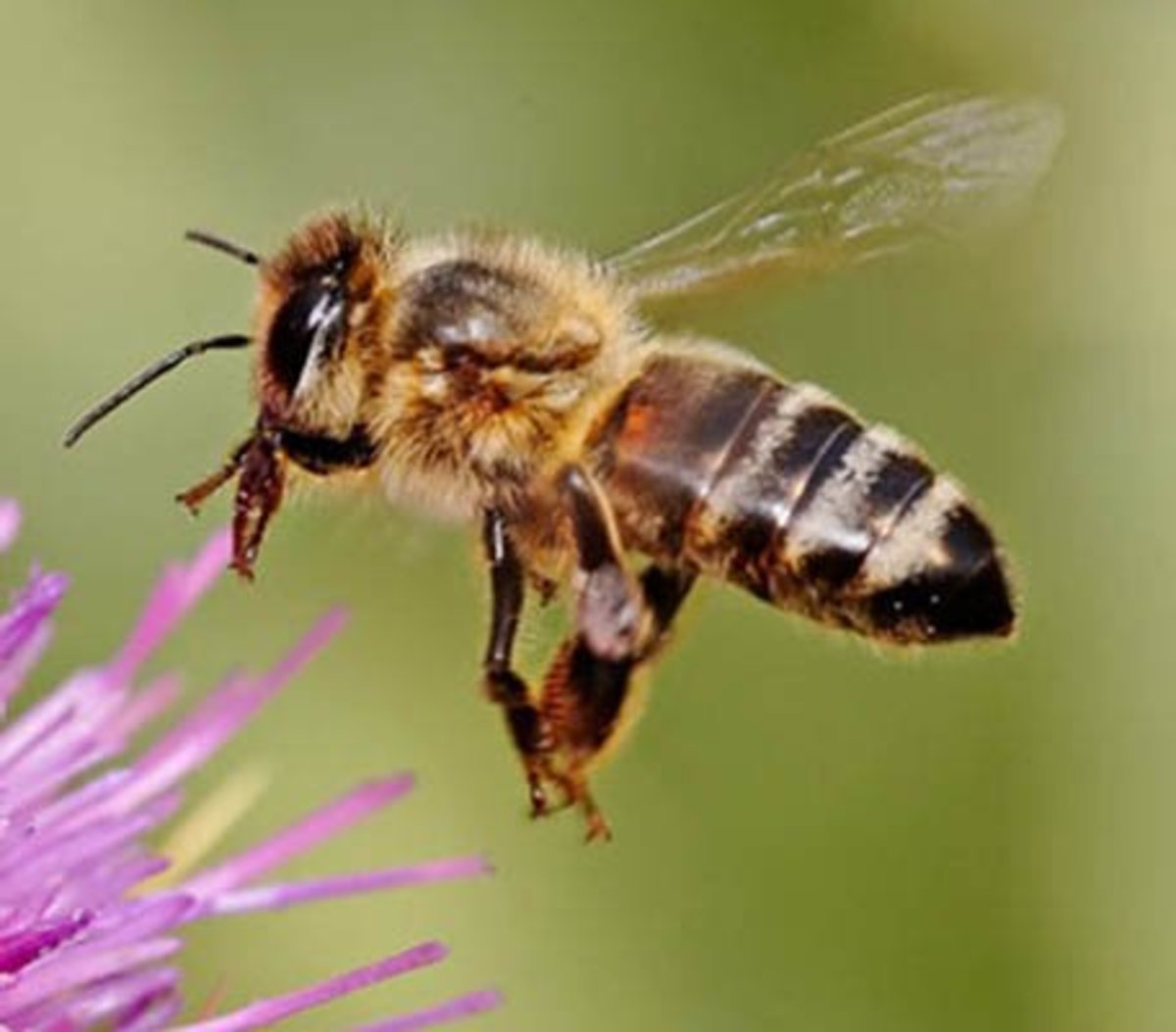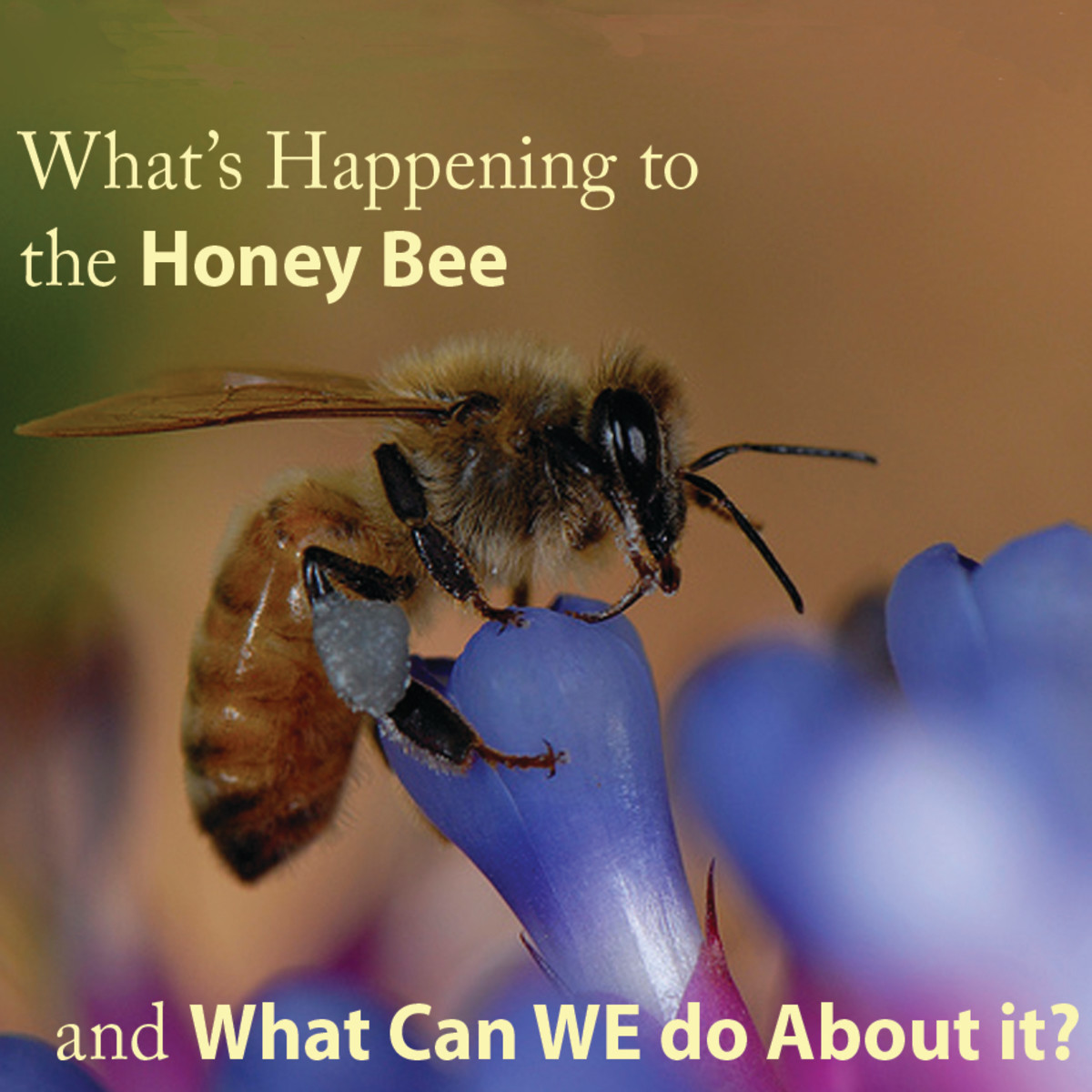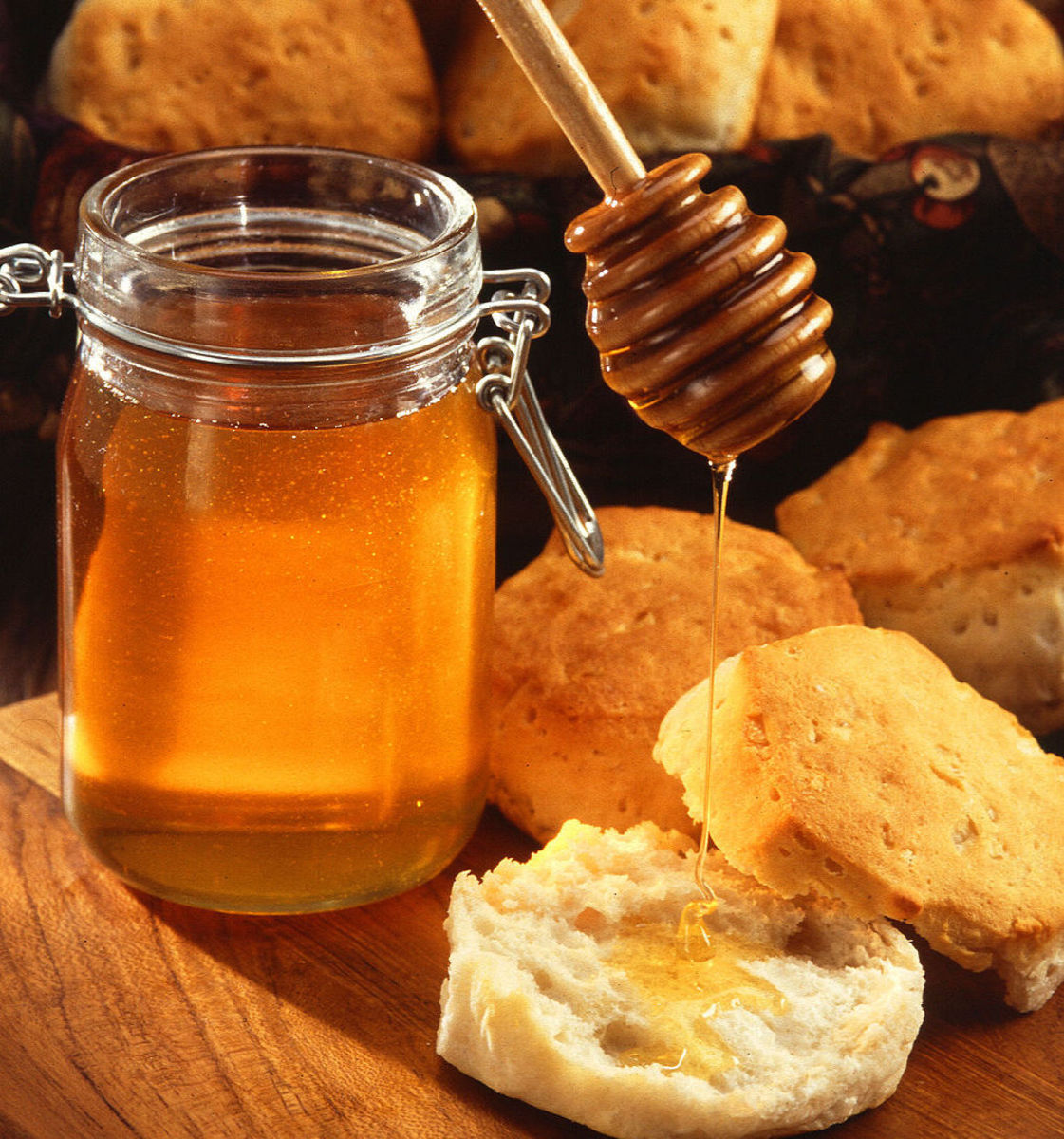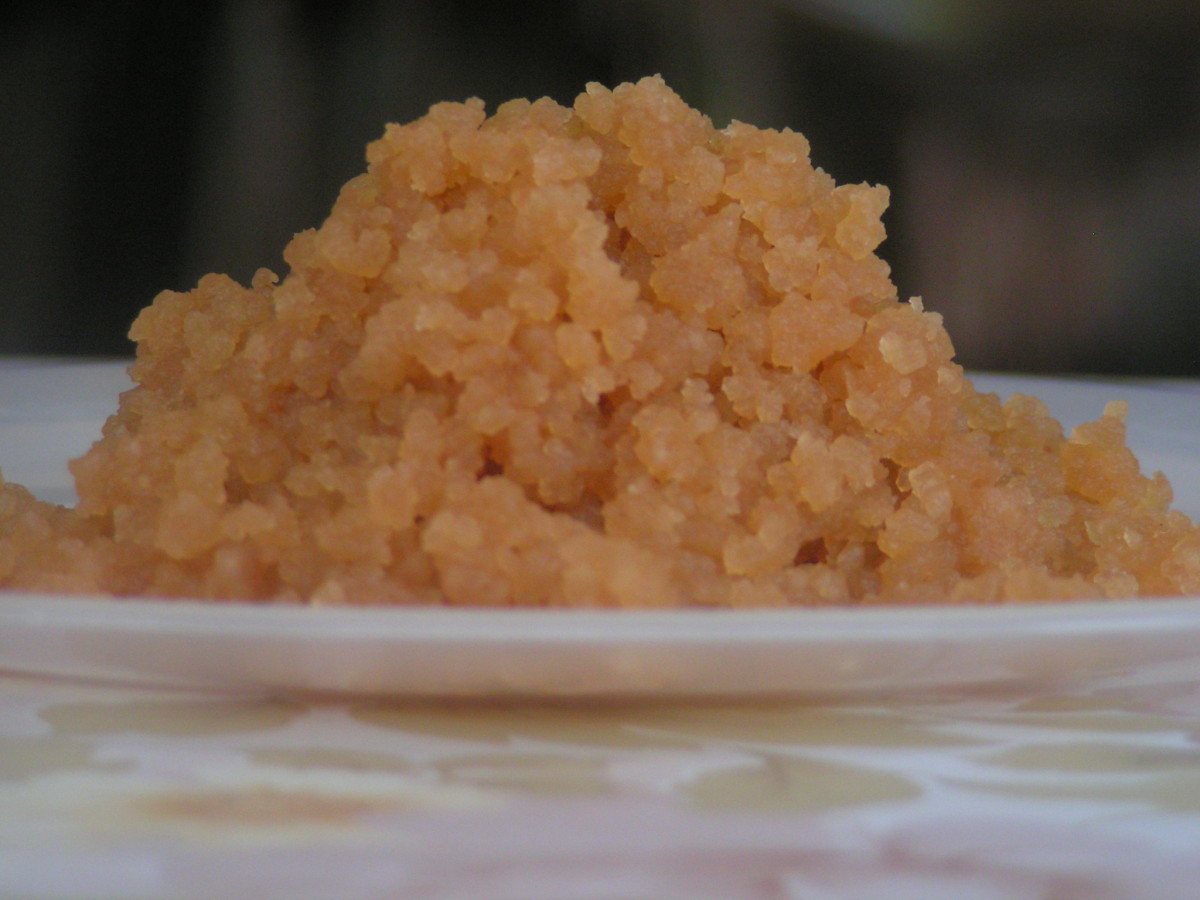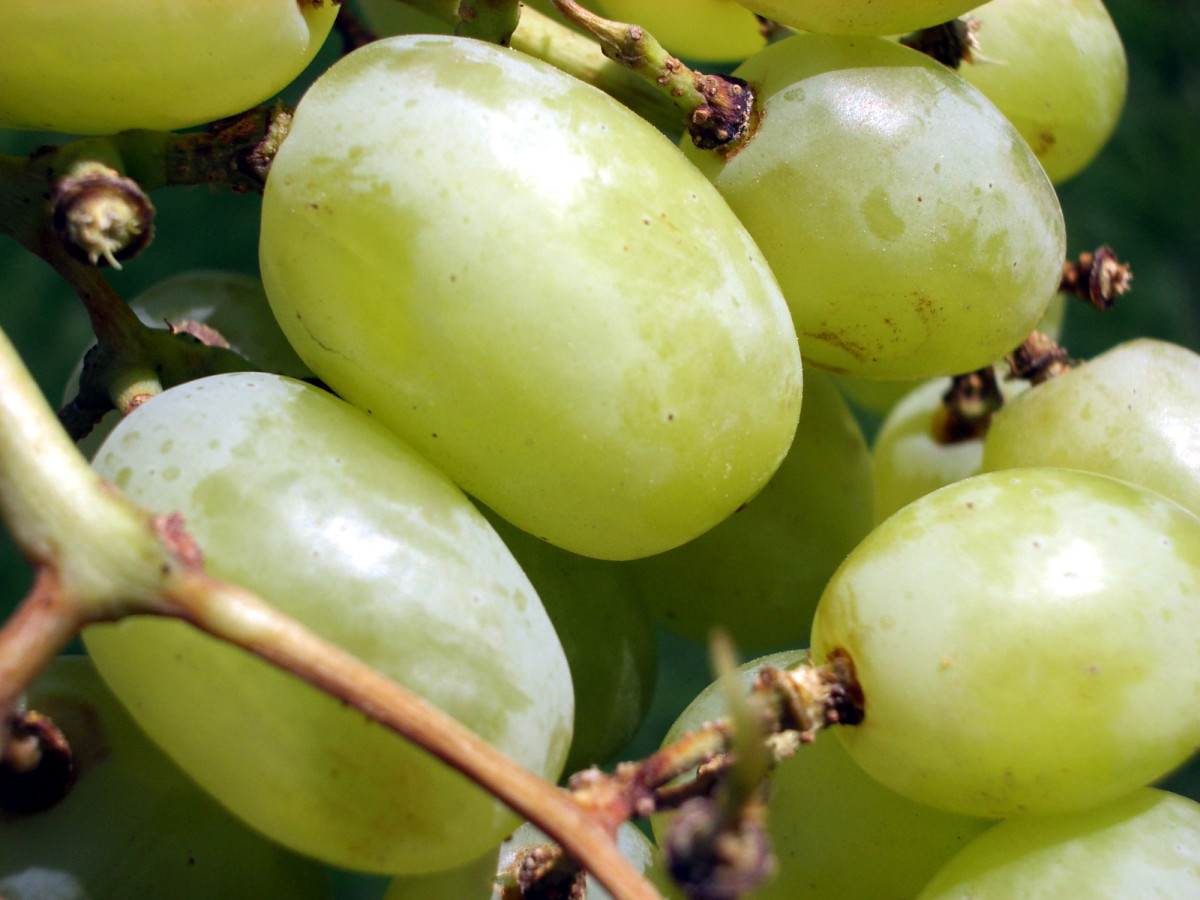How to Tame Those Allergies and Other Ailments
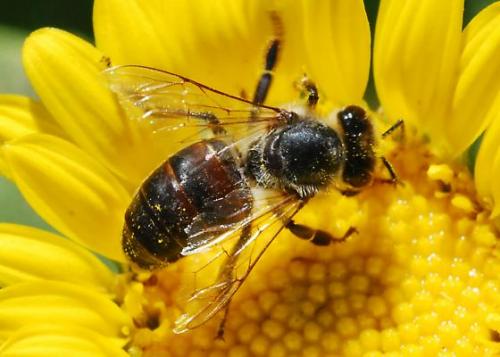
Helping Your Allergies
Did you know that the very little bee that you would love to destroy, for fear of getting stung, could save you from your allergies? Did you know that one benefit
That's right that little bee that pollinates all the flowers is the key to getting your allergies under control and do you know how? Honey. Not just any honey either. Not store bought honey but honey that is made right in your home town. These local bees have pollinated local flowers and then come back and make their honey comb. Local honey if eaten every day, just one teaspoon full, will build up your immunity to what your allergic too locally and let you have a breath easier spring and summer.
Isn't it worth a try since we all suffer so terribly from allergies these days? Find a local bee farmer and buy some honey from them. Take one teaspoon every single day and watch your allergies improve.
Yes these lovely little workers who make such a sweet treat are also helping the environment. The next time you get out your fly swatter to kill a bee, remember he will save you from a miserable allergy season. So open the door or window and set him free.
One thing to remember you should never give a child under the age of one honey it can give them botulism so no honey for babies mom and dad.
The Beautiful Comb Where Liquid Gold Comes From
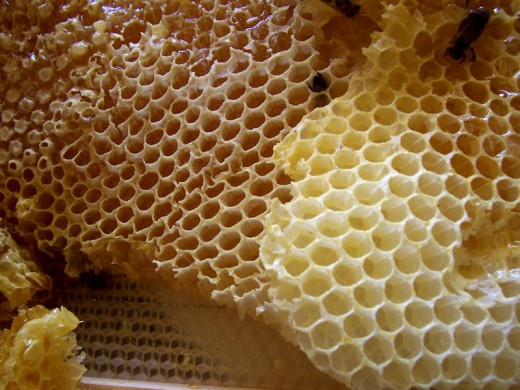
How is Honey Made
Honey gets its start as flower nectar, which is collected by bees', naturally broken down into simple sugars and stored in honeycombs. The unique design of the honeycomb, coupled with constant fanning by the bees' wings, causes evaporation to take place, creating the thick, sweet liquid we know as honey.
The color and flavor of honey varies from hive to hive based on the type of flower nectar collected by the bees. For example, honey made from Orange Blossom nectar might be light in color, whereas honey from Avocado or Wildflowers might have a dark amber color. In the United States alone, there are more than 300 unique types of honey produced, each originating from a different floral source.
Bee keepers must remove the excess honey. Bees in the colongy produce 80 pounds more then needed. It is extracted by the bee keepers by unsealing the was covering, which is later used to make candles. Once the was covering if off the comb it is put in a centrifuge to extract the honey. Many bee farmers will replace the honey comb back in the bees' home.
Some honey combs are sold and if you never tasted anything so sweet find some honeycomb and buy it.
Our bees are dying off slowly, but we need bees for fruit, vegetables and any kind of plant that flowers. If we kill off all the bees' we will lose a great producer.
Other Health Benefits of Honey
Honey has been widely used ove the years for many reasons. The benefits of honey is tremendous. It can be used for many other things besides allergies.
1. Helps prevent cancer and heart disease: Honey contains flavonoids, antioxidants which help reduce the risk of some cancers and heart disease.
2. Recent research shows that honey treatment may help disorders such as ulcers and bacterial gastroenteritis. This may be related to the 3rd benefit…
3. Honey is antibacterial, because the bees add an enzyme that makes hydrogen peroxide,” said Peter Molan, director of the Honey Research Unit at the University of Waikato in New Zealand. This contributes to the incredibly long shelf-life of honey.
4. Ancient Olympic athletes ate honey and dried figs to enhance their performance. This has now been verified with modern studies, showing that it is superior in maintaining glycogen levels and improving recovery time than other sweeteners.
5. Honey helps with coughs, particularly buckwheat honey. In a study of 110 children, a single dose of buckwheat honey was just as effective as a single dose of dextromethorphan in relieving nocturnal cough and allowing proper sleep.
6. Honey has been used in Ayurvedic medicine in India for at least 4,000 years and is considered to affect all three of the body’s primitive material imbalances positively. It is also said to be useful in improving eyesight, weight loss, curing impotence and premature ejaculation, urinary tract disorders, bronchial asthma, diarrhea and nausea.
7. Even though honey contains simple sugars, it is not the same as white sugar or artificial sweeteners. Its exact combination of fructose and glucose actually helps the body regulate blood sugar levels. Some honeys have a low hypoglycemic index, so they don’t jolt your blood sugar.
8. External application of honey has been shown to be as effective as conventional treatment with silver sulfadiazene. It is speculated that the drying effect of the simple sugars and honey’s anti-bacterial nature combine to create this effect.
9. Some varieties of honey possess large amounts of friendly bacteria. This includes up to 6 species of lactobacilli and 4 species of bifidobacteria. This may explain many of the mysterious therapeutic properties of honey.
10. Its anti-bacterial qualities are particularly useful for the skin, and, when used with the other ingredients, honey can also be moisturizing and nourishing. There are at least 40 types of honey, and each one has a distinctive taste and unique properties. Different honeys have different flavonoid profiles, depending on the floral source of the nectar.
Remember to never give honey to babies honey they can get botulism from it.
The Benefits of Honey are Tremendous
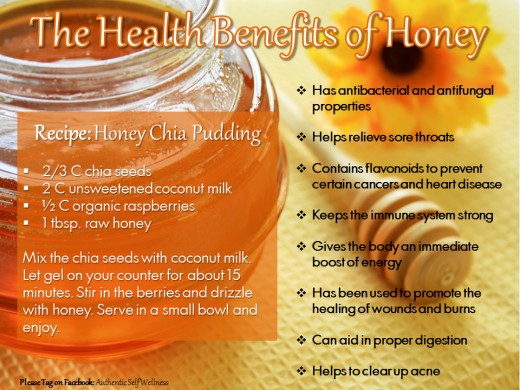
To Bee or Not to Bee
For many of us, honeybees are annoying. We think that their only purpose is to keep buzzing around and dropping their formic acid-laden stings on random people (this impression will certainly change when we stop getting spoonfuls of sweet honey in our morning cereal).
The truth is, honeybees are crucial elements of our environment, and almost never get the credit that they deserve.
Out of the 100 crop species that provide us with 90% of our food, 70% are pollinated by bees. It’s that simple.
Bees are the primary initiators of reproduction among plants, as they transfer pollen from the male stamens to the female pistils.
Some plants are pollinated by wind, but that rate is very slow. Insects are the primary pollinators on the planet. Beetles and butterflies also pollinate, but bees are the most efficient insects for this purpose. Without bees, we wouldn’t be able to savor delicious apples, cherries, and many other fruits and veggies (blueberries, avocado, broccoli, most leafy greens, cucumbers, pumpkins, and many more). Almond trees would be among the first casualties.
Our population does not realize if bees die off so will we. It's like stopping all trucking of food at a dead holt. If truckers went on a world wide strike we would most likely die. There would be no delivery of food, medicines or other things we need. The same thing goes for bees. If pollonating stops so do we.
What Happens When the Bees are Gone
Save the Bees'
You can help keep bees' going by planting some flowering trees. Where ever you live there is some type of tree that will grow and flower. I planted orange trees the the aroma of orange blossoms is heavenly. Of course these trees won't live through harsh winters like up north but there are other trees that flower that you can plant.
Help save us by help saving bees.

